As Western North Carolina prepares to celebrate the life of Martin Luther King Jr., Xpress asked various local leaders to reflect on King’s influence and legacy nearly half a century after his assassination on April 4, 1968.
Some of these people remember King’s life and work well. Some even participated in the civil rights movement or heard him speak at marches in Washington, Selma and beyond. Others hadn’t even been born yet when King was killed. All of them, however, say his work and example had a profound impact on American society that continues today. Here’s what they had to say, along with some compelling quotes from King himself.
Isaac Coleman
Civil rights activist, community leader, candidate for the Buncombe County Board of Commissioners
“During the civil rights era, I was a part of the Student Nonviolent Coordinating Committee. There were some differences between our group and King’s group. We were in favor of long-term involvement with the community, rather than just coming in and having marches and so forth. I was there in Selma, not during the bridge incident, but later that evening. I had an opportunity to hear Martin speak. … I was in the balcony of the church. He had me inspired so much I was about to jump out of that balcony.
“I saw nonviolence as a strategy, not as a way of life. I found myself in a situation in Mississippi one time where nonviolence was my best way out. I was facing a lynch mob. The whole town had just stormed the jail, busted the windows out, all kinds of crazy stuff going on. The police attacked me and hit me in the mouth and smacked me and beat me. My only tactic was to be submissive and to not fight back. If I had fought back, I probably wouldn’t be here today. Nonviolence as a tactic was really effective.
“Later on in his career, Dr. King was more and more focused on the peace movement and the labor movement. We got the right to go in the restaurants and to go to the movie theater. But then we reached in our pockets and found out that we didn’t necessarily have the money to do those things. So employment, jobs and things like that became a big issue.”
If King were alive today, he “would be concentrating on education. We should all be concentrating on education, because we can’t really have a democracy without an educated populace. The more uneducated people that we have, the less democracy we have. So I’m sure he would be talking about ‘How can we move education forward and make it available to all people?’
“We shouldn’t just look at the legacy and think that we have arrived. We haven’t arrived at anything, really: Things are better for some people, but they are not better for all people. And, like Dr. King says, until things are good for all people, things are bad for all people. We need to keep that in mind.”
Rev. Clark Olsen
Retired Unitarian Universalist minister, civil rights activist
Note: Haw Creek resident Clark Olsen was one of hundreds of ministers from across the U.S. who answered King’s call to join protesters in Selma, Ala., in the wake of the March 7, 1965, “Bloody Sunday” march. That Tuesday, Olsen had dinner with two other Unitarian ministers, the Revs. James Reeb and Orloff Miller; afterward, the three men were attacked by white townspeople wielding clubs. Reeb’s skull was shattered, causing massive internal bleeding. His murder galvanized public attention in a way that the murders of black activists had not. Less than two weeks later, President Lyndon Johnson mentioned Reeb’s death in a nationally televised address to Congress. The Voting Rights Act was passed on Aug. 6, 1965.
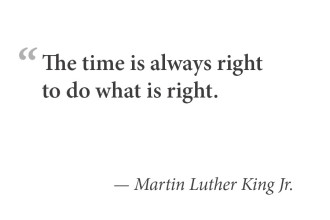 “Dr. King’s nonviolent approach to social change is what has remained with me over the years. If we had turned around and tried to fight those people who were attacking us, that would only have resulted in more violence, and it wouldn’t have had the impact that it did. Dr. King also showed the value of thinking strategically and working together with other people to plan a course of action. One lesson of Selma is that the local community was out in front. King and his supporters were drawn there by a movement that was already in progress. Mobilizing people to take action locally is a part of the heritage of the civil rights movement.
“Dr. King’s nonviolent approach to social change is what has remained with me over the years. If we had turned around and tried to fight those people who were attacking us, that would only have resulted in more violence, and it wouldn’t have had the impact that it did. Dr. King also showed the value of thinking strategically and working together with other people to plan a course of action. One lesson of Selma is that the local community was out in front. King and his supporters were drawn there by a movement that was already in progress. Mobilizing people to take action locally is a part of the heritage of the civil rights movement.
“When you see wrong, speak up. You never know what might happen. Just by deciding to go to Selma, I became part of a turning point in American history. It’s not guaranteed, but it’s possible to make an enormous difference in someone’s life or in history. Don’t say, ‘There’s nothing I can do’; you never know what the results might be.
“Dr. King would, of course, be aware of the injustice and the sadness of backward steps taken recently in regard to voting rights in North Carolina and Mississippi. The struggle for equal rights is an undone, incomplete work, as it has been from the beginning. There is a terrible legacy of slavery built into our Constitution. We are making progress in some very significant ways, and there is work to be done. It’s this generation now that must do that work, and in some cases that means relearning the history of the civil rights movement, or learning it for the first time.”
Oralene Simmons
Founder and board chair of The Dr. Martin Luther King Jr. Association of Asheville & Buncombe County; retired director of cultural affairs for the city of Asheville
“I’m sure [King’s] biggest issue today would be the violence. He created a nonviolent movement. In studying this, I learned that so many acts are considered violent. He felt just saying harsh words toward somebody is committing violence against them. It is an act of violence not to feed those that are hungry. It’s an act of violence to deny health care for the sick and the poor and not to have adequate housing and employment. All of those things are considered violence against humans.
“And he always spoke of human dignity for everyone in a nonviolent society.
“To him, love was the greatest thing. And if we love our fellow men and women, we will not want to create violence against them. That’s what I have learned from studying the teachings of Dr. King.”
Esther Manheimer
Asheville mayor, local attorney
“Dr. King led this nation to great change by confronting glaring racism. Dr. King challenged the concept of ‘separate but equal’ for what it was and is: a systematic way to oppress one segment of our community in all things, whether in education, transportation, jobs, eating in restaurants, dating or marrying another person and much more.
“Looking at our society today, Dr. King might argue that the root of racism still grows below the surface. This form of racism is subtle, making it more challenging to combat. While there are laws on the books that mandate equal opportunity, continued individual, societal and institutional racism result in continued inequality. This more veiled racism shows itself in the educational achievement gap, the number of minorities incarcerated versus whites, the differential in wages and housing quality, and of course in the prevalence of black males shot or otherwise killed by law enforcement officers.
“More must be done to fight against this contemporary form of racism, but an enemy you cannot see or readily define is even harder to battle than a known evil. As individuals, we are obligated to think about our actions. As a city, we must work together to support better educational opportunities, increased job creation and training, better housing choices that provide a safe environment for children, and dependable transportation that is useful for all of our citizens.”
Keith Young
Deputy clerk of Buncombe County Superior Court; Asheville City Council member
“Being from my generation, I’ve always been able to ride in the front of the bus. But it’s important that we not forget our history. Those rights that I have, people died for those rights. People were beaten, people were hung, people had dogs set on them, fire hoses turned against them. People suffered so that I could have the right to walk into a restaurant through the front door.
“We’ve come a short ways: We’ve taken care of the obvious. Now we have to take care of what’s not obvious. Maybe that’s when someone doesn’t like an ethnic or a black-sounding name. Maybe that’s when, if we see a black kid with his pants sagging, we see a thug. That’s the not-so-obvious racism. Our bias still shows, even when we don’t want it to. We’ve still got a long way to go.
“Kudos to the people who put on the prayer breakfast year in and year out. To everybody who has something to do with that, thank you. To all those who attend, thank you. And to all those who can look inside themselves and realize that we all have biases that we need to work on, thank you.”
Terry Bellamy
Former Asheville mayor; neighborhood outreach coordinator for the Asheville Housing Authority
“Social justice never goes out of style. This breakfast is an opportunity to reset our community’s moral compass. It’s important to be reminded of the struggle in order to appreciate what we have, as well as to ensure that those inequalities and injustices and travesties that were experienced before will not be repeated today.”
If King were alive today, he “would continue the work, because there’s still work to be done. But as a servant-leader, I believe he would teach servanthood and teach love, because that’s the basis from which he operated. If you look at the examples that he used, he looked to Gandhi, he looked to the Quakers. He looked to the individuals who accomplished significant change, and he asked how they did it most effectively. It was from the foundation of love. You must love your brother or sister enough to stand in the midst of opposition to change.
“You can’t stand under nonviolence if you don’t have a commitment to love. Just because you say you are nonviolent, there has to be something motivating you to stand, and to withstand, the hose, the dogs, the blows, the shouts. You have got to be there and stand there because of love, not because of nonviolence.
“I don’t think [King] would say there’s one issue that rises above all the others today. I think he would talk about education not being where it needs to be for African-Americans. I think he would look at the unemployment rate among African-Americans and challenge the nation to make some changes. I think he would look at the issue of immigration and how lower-income people are treated. He would look at a broad array of issues. He would thank those that are making a commitment for change, and he would say, ‘Do more, do better.’ And he would challenge those who are silent, who are sitting on the sidelines, to do more, to get engaged.”
Willie Mae Brown
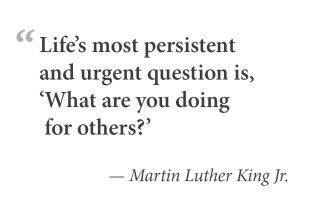 Community volunteer, retired from Ball Glass Manufacturing Co.
Community volunteer, retired from Ball Glass Manufacturing Co.
“I have worked on the prayer breakfast for so many years for the simple reason that Dr. King stood for all people. It wasn’t only for black people: It was for all people. He believed in equality, he believed in fairness, and he believed in the goodness every person was created for.
“I don’t think his legacy will ever be forgotten, but also I am concerned that it is not known to many of the younger generation. If you don’t know where you’ve been, then you don’t know where you’re going. So the breakfast is not only a legacy for him but a way to build unity in the community.
“Sometimes it seems we have made one step forward and two steps back, and I think [King] would be disappointed in that. It is up to all of us individually to continue to live for the ideals that he lived for and died for.”
Gene Bell
CEO, Asheville Housing Authority
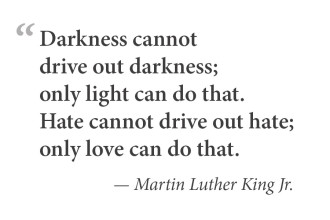 “This last few years, it seems like we are looking for enemies. Groups of people are looking for people to disdain. Right now it’s Muslims, but it hasn’t been long since it was Hispanics. Before that the Asians, before that the African-Americans, and before that the Native Americans. There’s always got to be an enemy. And now we’ve come up with more enemies than we ever had.
“This last few years, it seems like we are looking for enemies. Groups of people are looking for people to disdain. Right now it’s Muslims, but it hasn’t been long since it was Hispanics. Before that the Asians, before that the African-Americans, and before that the Native Americans. There’s always got to be an enemy. And now we’ve come up with more enemies than we ever had.
“Black people contribute to this society. Over the years, we’ve contributed through our free labor, through our innovations and our hard work, but we are portrayed as being everything but contributors. I’d like to see more focus put on the contributors, not the ones that are disenfranchised.”
Carmen Ramos-Kennedy
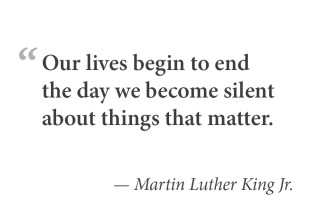 President, Asheville branch of the NAACP
President, Asheville branch of the NAACP
“Since the birth of the modern civil rights movement, we have seen much progress, evidenced by the presence of blacks and other minorities in high places in government, education, sports and entertainment. But more and more it seems as if our country is going backward in terms of social justice and equity. When you see laws that protect voting rights and affirmative action being chipped away, you can’t help but reflect on what Martin Luther King would say about the issues facing our nation. When you see decisions by the U.S. Supreme Court, regional and state courts that have done harm to the civil rights movement, you can’t help but think about Dr. King.
“I think he would be disappointed to see that a substantial segment of our people — black, Hispanic and poor white communities — have been left behind and forgotten. Institutionalized racism, benign neglect, poor schools and health care, toxic environments and economic injustices negatively affect communities everywhere. These scenarios continue to promulgate the disintegration of hope for the future and create apathy. For far too many, the American dream remains just that: a dream.
“But I am still hopeful. I believe, as Dr. King stated, ‘The arc of the moral universe is long, but it bends toward justice.’ That is why you will see me on the front lines, engaging and educating voters. It is why we must all realize the historic nature of the 2016 election cycle. We MUST VOTE, no excuses: Our democracy depends on it.”
Namurah Blakely
Local business owner and entrepreneur; MLK Association board member
“I wish Dr. King’s speeches could be played over and over for everyone to hear. If everyone just took a page out of his book, out of his nonviolent teachings, this world would be a different place.
“I’m amazed at some of the hate-filled stuff that I’m hearing every day when I turn on the TV. Although I don’t want to only single out Trump, he is definitely playing into people’s fears and biases. I am amazed at how many people are following him. When you stop and listen, where it’s coming from is not a good place. I’m surprised that so many people are listening to him. A lot of people are just afraid. They are afraid that something they’ve had for years is being taken away from them.”



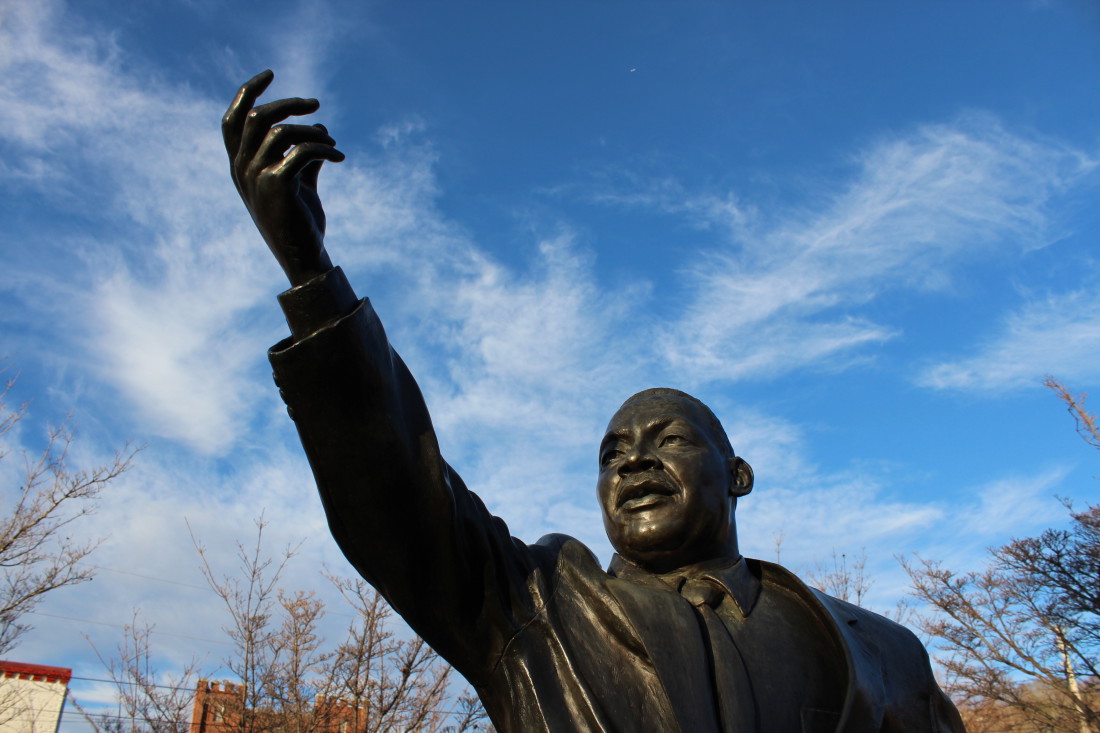
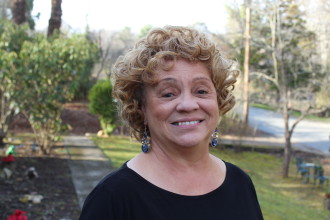
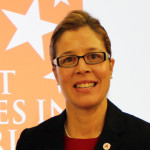
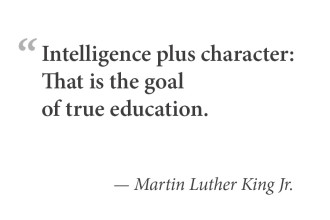
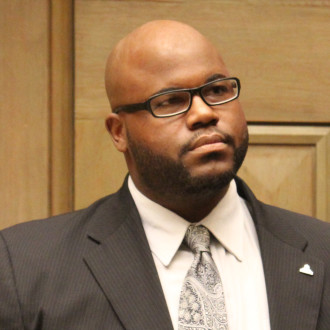
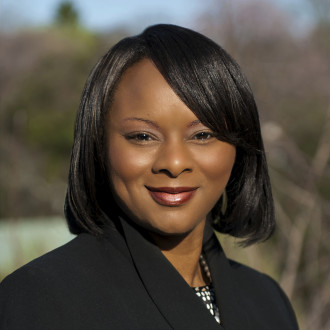

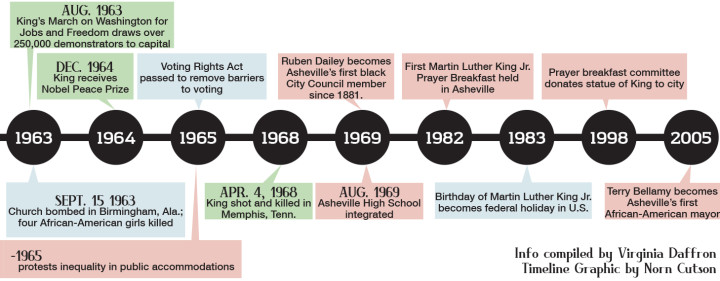
Dr. King’s son, Dexter, has said that his vegetarianism is a logical extension of his father’s philosophy regarding non-violence. He is now a vegan, as was his late mother, Dr. King’s wife, Coretta Scott King. Caesar Chavez was a vegan, Gandhi a vegetarian, and the list goes on. When I first embraced the Civil Rights movement in the late 1960’s, I ate meat, and had someone back then suggested I would one day be a vegan, I would have questioned their sanity. But I evolved, and I am certain that Dr. King would have also made the connection had he not been murdered at such a young age. He was an amazing man.
I respectfully share the following article:
A vegan lifestyle honors Martin Luther King, Jr., by Virginia Messina
http://www.examiner.com/article/a-vegan-lifestyle-honors-martin-luther-king-jr
In 1843, Bronson Alcott, father of Little Women author Louisa May Alcott, moved his family to a country farm and set out to build a utopian community. Alcott was an avid anti-slavery abolitionist and a vegan. The family wore only linen because cotton was the product of human slavery and wool was stolen from sheep.
The experiment was a dismal failure, later parodied in Louisa’s novelette Transcendental Wild Oats. But Bronson Alcott is remembered by many as one who recognized the wide scope of injustice in his world. It made no sense to him to campaign against human slavery while consuming the meat or milk of enslaved animals.
Alcott was just one of the scores of people who have spoken out in big and small ways against injustice over the centuries. And today we honor a man whose voice for justice was the most courageous and insightful of the 20th century.
We can’t help but wonder: Would the Reverend Martin Luther King, Jr. have become a vegan at some point in his life? It’s certainly conceivable that he would have. His son Dexter Scott King, who is president of the Martin Luther King Jr. Center for Non-violent Social Change, has been vegan for more than 20 years. He once said that vegetarianism is the logical extension of his father’s philosophy regarding non-violence. Coretta Scott King, a tireless activist for social justice, was also a vegan for more than ten years before her death in 2006.
If his wife and son saw the link between animal foods and violence, it’s not hard to imagine that Dr. King would have perceived this connection as well. Writing from the Birmingham jail in 1963, he said “Injustice anywhere is a threat to justice everywhere.”
On the King Center website, Coretta Scott King wrote that, while we remember Dr. King himself today, it is also a day that commemorates “the timeless values he taught us through his example—the values of courage, truth, justice, compassion, dignity, humility and service…”
A commitment to veganism honors the principles that were at the core of Dr. King’s work.
MLK applied for a concealed carry gun permit, and was refused; he built a shantytown in a park in total violation of the Asheville UDO; and he wrote this overpopulation speech: https://www.plannedparenthood.org/planned-parenthood-gulf-coast/mlk-acceptance-speech . I can only wish modern activist leaders like Barber would even come close to King’s legacy. They can but they refuse.
Here’s an article on Dr. King and the gun permit. http://www.huffingtonpost.com/adam-winkler/mlk-and-his-guns_b_810132.html. Most of us, of course, are not threatened with assassination threats daily. And yet the article says King eventually decided to forgo even that degree of personal protection in the name of non-violence and justice. Another reason to honor the man.
King was guarded extensively and repeatedly by volunteer civilian gun owners.
Yes. But he strove to create a land where such would be a thing of the past.
In that he failed completely, and he knew the need for civilian gun owners would greatly outlast the need for armies and police.
The city of Asheville must disarm long before it can ask civilian residents and commuters to disarm. King knew this clearly.
Please explain how an unarmed police force would not be ground up like mice under a rotary mower by the first heavily armed group of jewelry store thieves they came across.
Yeah? Well, please explain to me how citizens without paramilitary-grade weaponry are going to be able to occupy a government building for weeks without being peacefully evicted. You cannot expect people to give up the things they love just to have your own selfish utopia.
How? Politics and publicity, basically. Never give someone willing to be a martyr for the lunatic fringe the chance to actually be that martyr. Especially not when a xenophobic, nativist bigot and thug is the frontrunner for the political party that most closely identifies with the lunatic fringe.
It’s much better to allow concerned patriots to continue to mail (via US mail, ironically) dildoes and feminine hygiene products to the Oregon occupiers.
As for the rest of what you were saying, you lost me… You’ll have to explain.
The unique thing about passive resistance is the passive part. The unique thing about loony-tunes resistance is the tunes, and not everyone can carry a tune without the proper accompaniment. You have to accept that other people have tastes, too.
Don’t you fret. I accepted long ago that when it comes to tastes, our good friend Mr. Ditmore’s tend to run toward the more exotic ends of the spectrum. In a nutshell, he believes that Asheville should be an agglomeration of housing — strictly housing — akin to the old walled city of Kowloon, and that government’s single, solitary responsibility is contraception and preventing as many births as physically possible.
The problem with thosse tastes is that they’re utterly unrealistic, not to mention justifiably insane, and from time to time it forces me to go against my longstanding rule of not teasing the mentally unwell until such time as he receives the sedation and supervised care he so obviously needs.
Although, I do have to admit to voting for him in the past just in acknowledgement of the entertainment value he would have brought to the various offices he ran for.
Local government actively uses boredom as a tool to suppress opposition turnout, so if I am entertaining then I am doing my job.
When has anyone ever been “peacefully evicted”????
That’s why it is small government that reduces the gap between rich and poor, and not big government
I’M still waiting for the FBI files on MLK to be released to the public
I understand that originally they contained some information that would be upsetting to his wife Coretta, but Coretta is now long gone, and still the files are sealed
Why ?
probably because it would incriminate many democrackkks who hated him.
What would MLK say today? …well to Gene BELL and Terry BELLAMY, he would say teach the people residing in public housing
how to clean up their trash and litter surrounding their projects and teach them to RESPECT the OTHER people in town who PAY for their existence!!! Bell, Bellamy AND Samantha Bowers should ALL be ashamed of themselves for such ongoing DISrespect to the TAXPAYERS !!!
https://mountainx.com/opinion/letters/0621letters-php/ see 5th letter down “Homeless should have priority” on Bellamy.
They make less trash than most Ashevillians, so I am guessing they make less trash than you. Maybe you should quit sending your trash to a certain oppressed North Buncombe Neighborhood and keep it in your own neighborhood like they do.
Wanna play a game called ‘what if’?
MLK would have gotten over his non violent followers being beaten by cops, firehosed, attacked by dogs, jailed, killed etc. for wanting equal rights for Americans born here, regardless of the color of their skin.
Then he and his followers would embrace the 2nd Amendment, clean out all the gun stores for buying their wares- especially high capacity magazines, (legally of course, and they would wear their paperwork for legal gun ownership on their sleeves),
Then they would occupy a federal building in a rural area of Murica, non violently, yet armed while they sang Christian spiritual songs.
Then the local KKKops, FBI and every single white KKKhristian domestic terrorist organization would shoot every member of his freedom brigade to death within 5 minutes of doing so.
That’s what would happen.
Next question please?